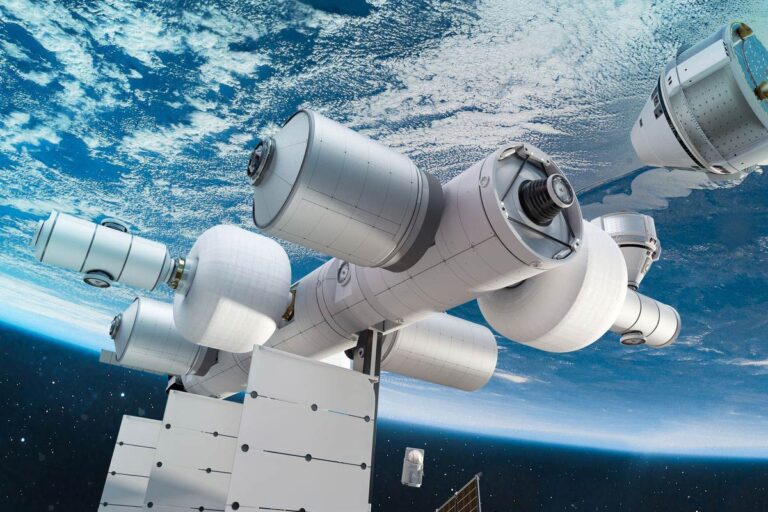Jeff Bezos announces plans to build a ‘space hotel’

Reports have revealed, including those from the BBC, that Blue Origin—Jeff Bezos’ spaceflight services company—is planning to take yet another step into the world of space tourism. Leaders from Blue Origin announced, at a press conference held on Monday 25 October, plans to create a commercial space station. And it’s thought to come sooner than you’d think.
The commercial space station, named ‘Orbital Reef’, is hoped to be in operation by the end of the decade. In marketing material released by the spacecraft company, the proposed station is described as a “mixed-use business park” in space and will be able to host up to ten people (a volume almost as big as the International Space Station [ISS])—you really can do remote work from anywhere these days. Orbital Reef is set to be built in low Earth orbit and will offer budding consumers an opportunity for research and tourism, says Blue Origin.
“The station will open the next chapter of human space exploration and development by facilitating the growth of a vibrant ecosystem and business model for the future,” it added.
“Seasoned space agencies, high-tech consortia, sovereign nations without space programs, media and travel companies, funded entrepreneurs and sponsored inventors, and future-minded investors all have a place on Orbital Reef,” the company further noted. Someone might be left out of the loop however—I’m going to go out on a limb here and say that Elon Musk’s invitation got lost in the space mail.
Announcing #OrbitalReef - a commercial space station transforming human space travel and opening access to new markets. Our team developing the premier commercial destination in low Earth orbit: @BlueOrigin @SierraSpaceCo @BoeingSpace @RedwireSpace @ASU https://t.co/PP4wxrfkF3 pic.twitter.com/qJDdYg7BSv
— Orbital Reef (@OrbitalReef) October 25, 2021
Blue Origin’s initiative will be conducted in collaboration with Boeing and Sierra Space (backed by Redwire Space, Genesis Engineering Solutions and Arizona State University), both of which will contribute in building the space station by providing human and cargo transportation to the commercial station. Not only will the 32,000 square feet station be used as an ideal rest stop for Blue Origin customers but it will also offer an optimal location for “film-making in microgravity” as well as including a “space hotel.” Don’t worry, the hotel comes with a view.
Orbital Reef announced that its station will have large Earth-facing windows so that space tourists can “take in the beauty of our planet” and “experience the thrill of weightlessness in complete comfort.” At the press conference announcing the venture, both Blue Origin and Sierra Space declined to provide an estimate of the building costs—though we must assume it’s going to cost a pretty penny.
This proposal seems to come at the perfect time as NASA searches for options to replace the 20-year-old ISS; Boeing vice president and programme manager for the ISS John Mulholland said in a statement on the proposed commercial station, “This is exciting for us because this project does not duplicate the immensely successful and enduring ISS, but rather goes a step further to fulfil the unique position in low Earth orbit where it can serve a diverse array of companies and host non-specialist crews.”




